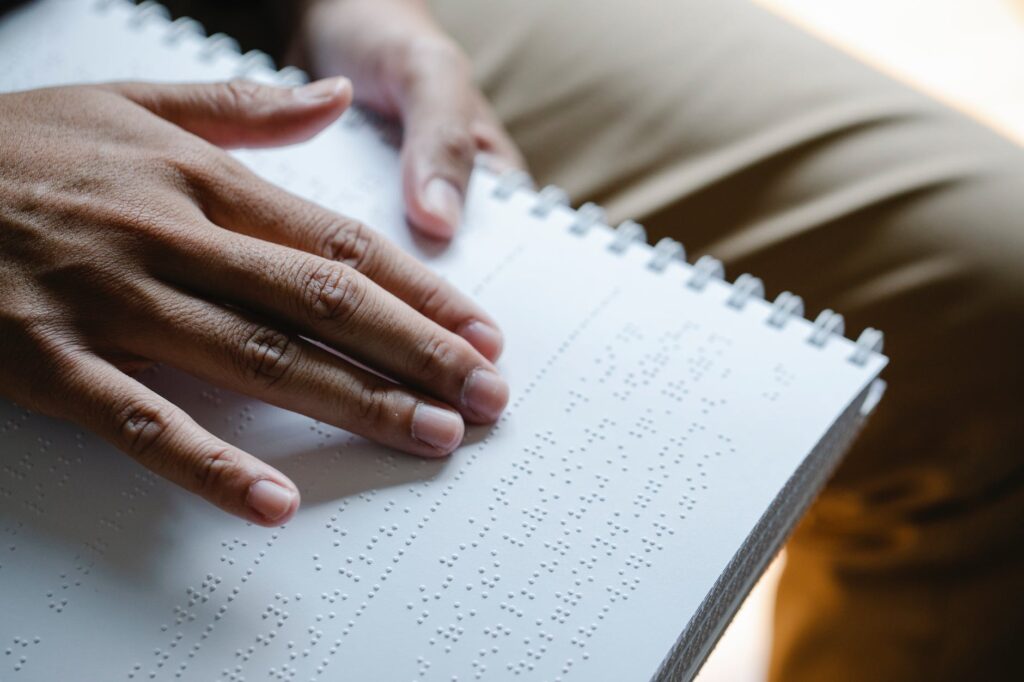What is the difference between an Academic Concession and an Academic Accommodation?
Photo by Eren Li on Pexels.com
What is an ACADEMIC ACCOMMODATION?
This refers only to SFU’s LEGAL DUTY to accommodate under the Accessibility for Students with Disabilities Policy (GP26) and the Human Rights Policy (GP18). This may include things like students missing class due to religious holidays or other Human Rights-based accommodation needs or students registered with the Centre for Accessible Learning (CAL). Students who are working with the Sexual Violence Support and Prevention Office are also sometimes eligible for these accommodations.
- These accommodations should enable the student to demonstrate their knowledge and skill without diluting curriculum or credentials, or detracting from the responsibility of the student to achieve individual results consistent with course/program requirements and objectives.
- All reasonable accommodations provided by Simon Fraser University must:
- Be based on documented individual disability needs;
- Allow the most integrated experience possible;
- Not compromise the essential requirements of a course/program for all students;
- Not pose a threat to personal or public safety.
Photo by Andrea Piacquadio on Pexels.com
What are ACADEMIC CONCESSIONS?
These are granted when unexpected situations or circumstances prevent students from participating in course-related activities due to illness, bereavement, family obligations etc. This might include a student missing a class, or failing to complete graded work or exams.
Academic Concessions are available to ANY student*, BUT concessions are normally granted at the discretion of individual instructors and are NOT guaranteed. Some Departments and Faculties may have specific procedures that are normally followed as well.
STUDENTS SHOULD ALWAYS SPEAK TO THEIR INSTRUCTOR AND/OR TA AS A FIRST STEP IF THEY FEEL THEY SHOULD HAVE AN ACADEMIC CONCESSION AND DO SO AS SOON AS POSSIBLE.
Skip right to the SFU Self Declaration of Illness Form here
COMMON TYPES OF ACADEMIC CONCESSIONS
Instructor Granted Concession
Instructor-granted concessions are those arranged by an instructor for a student upon a student’s request. These may take the form of extensions, deferred exams, make-up exams, alternate assignments, or the re-weighting of grades. There is no direction nor obligation for instructors to provide a concession except in cases where the concession becomes an accommodation under the policies cited above: GP 18 or GP 26.
Departmental or Faculty Granted Concessions
Departments may be able to provide some flexibility in program requirements. Examples include course substitutions, course pre-requisite waivers, and continuance GPA exceptions. Many of these concessions are handled at the department advisor level, though some may require sign-off by the chair/director. With support from their Dean, departments may also recommend degree-level requirement exceptions to the Registrar/designate.
Withdrawal Under Exceptional Circumstances (WE)
The WE is a notation that replaces a grade on the transcript. The WE indicates that a student dropped a course after the normal course drop deadline due to extenuating circumstances. This is not handled by your Instructor and is processed through the Registrar’s team. There are different procedures for graduate and undergraduate students:
- The WE process and appeals process are explained here:
- Undergraduate students: Information on the WE process can be found here: https://www.sfu.ca/students/appeals/withdrawals.html
- Graduate students: Information on the WE process can be found here: https://www.sfu.ca/gradstudies/graduate-students/managing-your-program/withdraw/withdrawals.html
Deferred (DE) Grade
A deferred grade is a temporary grade assigned at the end of the term for incomplete course work. A deferred grade will eventually revert to a letter grade or notation. The DE notation can be issued in two circumstances.
- A student must request a DE on the basis of documented medical or compassionate grounds within 24 hours after the final examination date or final course work is submitted. Within four days the student must also submit a physician’s certificate or other document substantiating the request for deferral. Failure to submit supporting documents may result in an F grade.
- The course instructor decides to defer submitting a final grade pending completion of further work by a student or students.
All unchanged DE notations will be converted automatically to N after the end of the first week in the following term. In exceptional cases, an extension may be granted by the instructor and must be approved by the department chair and submitted in writing to the Office of the Registrar with a final deferral date. Normally, the maximum extension allowed is the end of the term following the original deferral.
Aerograt Standing (AE) Grade
The AE grade (sometimes called a “compassionate pass”) is granted for an incomplete course on medical or compassionate grounds by the Registrar acting on the recommendation of the instructor or department chair. Written evidence must substantiate such a request, given that the course requirements have been substantially fulfilled. This evidence normally must be received by the registrar or department within 96 hours of a scheduled final exam or within 96 hours of the last day of term lectures for which such standing is requested. Courses for which aerograt standing is awarded are not included in the GPA calculation. An AE grade is normally reserved for the most extreme cases where instructor-granted concessions, DE, or WE options are not available.
Photo by Andrea Piacquadio on Pexels.com
HOW DO I GET AN ACADEMIC CONCESSION?
Step One: Talk to your Instructor and/or TA as soon as possible.
As soon as you are aware that you are not going to be able to meet course expectations or deadlines, reach out for help and options from your Instructor. Discuss with your instructor reasonable options for completing the work for the course in a timely manner.
Instructors have discretion about whether and how to offer academic concessions. They will need to weigh a number of competing considerations, among which are: compassion for students, fairness of evaluation for all students in a course, and achieving the educational goals of the course and the academic program.
Step Two: Gather any paperwork*
An instructor may ask for documentation to support a request before giving approval.
SFU reevaluated the requirement of medical notes due to the financial burden they pose for students and administrative burden they pose for doctors. For Fall 2021, you shouldn’t have to provide a medical note for a short term illness, however, instructors may require students to complete a self-declaration form. Longer term issues (typically impacting you for more than 5 days) may require documentation from your doctor or Student Health and Counselling.
Step 3: Be Creative! What would help you get through this issue/challenge?
Most instructors are fairly compassionate, but oftentimes if you can solve the issue with minimal impact on your Instructor, TA, or classmates, a hesitant instructor will be more likely to grant a concession.
Some examples of creative problem solving:
- Imagine you have been scheduled for a late final exam slot and must give a final presentation in class that day but you have already booked your flight home.
- If you must miss an in class presentation perhaps you could film it in advance from home and submit that to your Instructor, or even propose an alternate format for the assignment such as a podcast, music video, or miniature documentary that they can play for the class in your absence.
- Suppose you are feeling perfectly okay, but are required to self-isolate due to a possible exposure to COVID 19.
- Perhaps you have a friend in the class you must miss who can record the lecture, or better still, have them set up zoom/Google Meet on their laptop so you can watch and listen in real time until you are cleared to return to school.
Step 4: If you need further assistance
- Speak to your instructor, department head/chair or Dean to see if you might be eligible for a DE or AE (see above for definitions).
- Speak with your academic advisor about the Elective Grade System (Pass/Credit/No Credit) *currently available through the end of 2021.
- Speak with your academic advisor about dropping the course(s) and whether you might be eligible for a Withdrawal due to Extenuating Circumstances (WE) instead of a Withdrawn notation on your transcript.
- Confirm information on SFU’s page on Academic Concessions
- Reach out to the SFSS Advocacy Coordinator or the Ombuds Office.
*Please note that the policies and procedures around academic concessions and documentation were under review by SFU in light of COVID 19 and the safe return to campus planning. This information may continue to be in a state of flux and is accurate to the best of our knowledge as of January 19, 2022.




